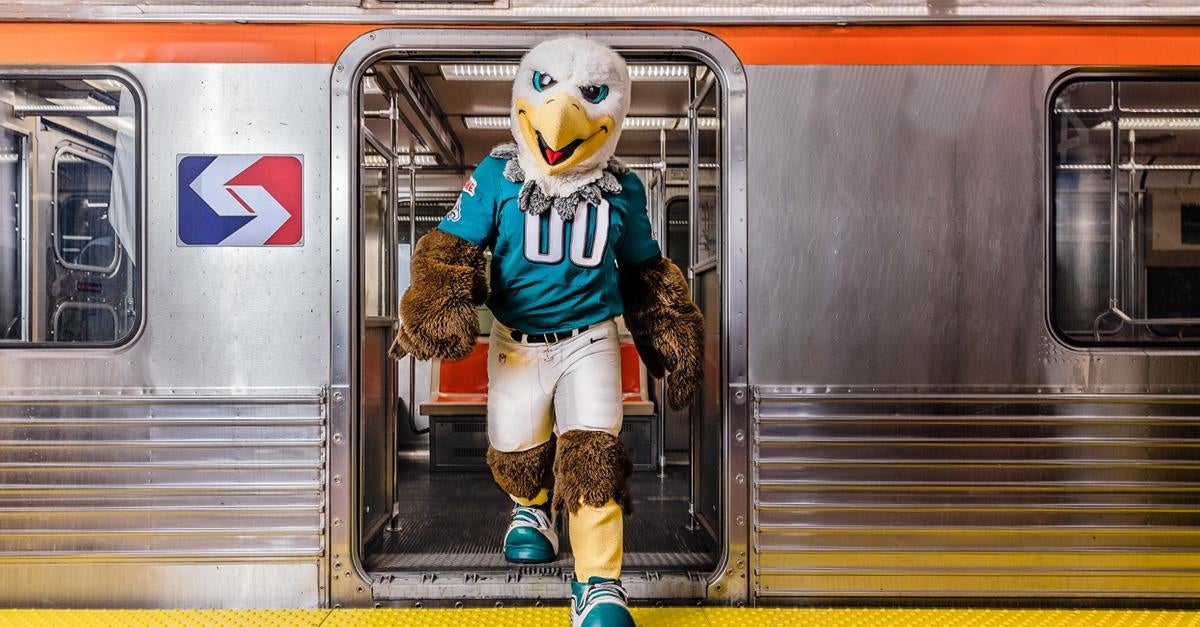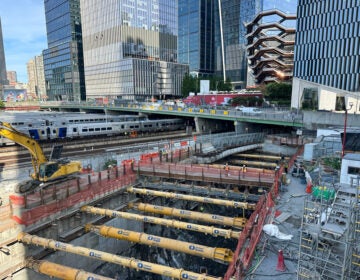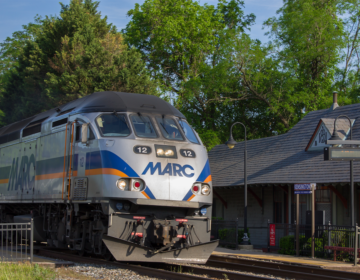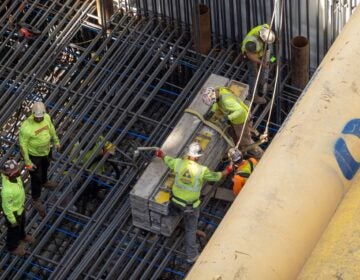Why SEPTA lost Super Bowl Sunday’s transit game

Last night, the Philadelphia Eagles were unstoppable.
Philadelphia’s public transportation? Not so much.
SEPTA announced on its Twitter feed the cancellation of 57 Regional Rail trains on Sunday due to “Manpower issues.” The Sunday before? Zero.
SEPTA usually runs around 300 trains on a Sunday, meaning nearly one out of every six trains didn’t run yesterday.
A SEPTA spokesman said he couldn’t say why so many conductors and engineers called out. But most of the cancellations came in the late afternoon and early evening — the hours leading up to the Super Bowl’s 6:30 p.m. kickoff.
Crew shortages have been a lingering problem for Regional Rail — a large number of retirements in 2016 left SEPTA without the full complement needed for quite a while, as it worked to hire train new conductors and engineers. Some critics say SEPTA still doesn’t have enough, relying too much on crews working overtime to staff weekend service.
Crew shortages were hardly the limit of SEPTA’s Super Bowl-related problems. Like New England’s defense, SEPTA seemed unable to handle what Philadelphia threw at them last night.
More than two dozen bus routes were suspended Sunday night as revelers took to the streets after the game.
SEPTA ran the Broad Street Line and Market Frankford Line per their usual Sunday schedules, meaning both stopped running shortly after midnight. But the streets were still thronged with celebrating fans, which led to SEPTA canceling the Nite Owl buses that usually run while the subway and El are closed. Most of the bus cancellations weren’t announced until 10:16 p.m., around the same time Tom Brady was tossing up his failed Hail Mary as the final seconds ticked off the game clock.
That left Center City effectively devoid of transit options late Sunday night, and lots of fans who took SEPTA downtown were left to take expensive cab rides, or make long walks, home.
The failure to predict the need for more or alternative service following an Eagles win has some worried about how SEPTA will handle the victory parade on Thursday, which will start at Broad and Pattison and end at the Art Museum.
SEPTA was roundly panned for its performance the last time Philadelphia hosted a parade for a pro sports championship when the Phillies won the 2008 World Series. The transit agency didn’t get close to meeting demand from fans, and overly packed trains and buses left plenty of would-be riders stranded at stations and stops.
Since then, SEPTA has fared better handling other major public events, like the papal visit in 2015 and the Democratic National Convention in 2016. But it’s safe to say that the Eagles trump both politics and religion among SEPTA employees, and arguably the region as a whole, which may mean manpower concerns come Thursday’s parade.
SEPTA expects to discuss its plans for the parade at a press conference Tuesday morning.
PATCO had its own troubles Sunday night. The South Jersey transit line stepped up services a bit heading into the Super Bowl evening, going from two trains per hour to three. After the win, PATCO decided to run even more trains to handle the sudden influx of revelers trying to make their way into the city for the impromptu celebrations, says Delaware River Port Authority (DRPA) CEOJohn Hanson.
PATCO started running trains into the city every ten minutes beginning at 10:50 p.m., taking advantage of the fact that they had extra operators on hand, as they do every Sunday night, rearranging cars at the railyard to set them up for the start of the work week on Monday.
But even with two extra trains before it, the 11:20 train was packed. Shortly after leaving Ferry Avenue Station in Camden, the operator got a “door breaker fault,” says Hanson, indicating that someone was trying to open the door while the train was moving. That kind of fault automatically stops the train.
While the operator tried to inspect the fault, other passengers started using the emergency exits, rather than wait for a second “rescue” train to pick them up. Once passengers were out on the tracks, PATCO had to shut down power to the line to prevent electrocutions and send in their police to corral the riders. The whole affair took two hours to resolve.
Hanson says PATCO is still working on its plans for Thursday’s parade, but he expects they will run something similar to what they did for the Pope’s visit: trains will run express heading into the city, making a single pick up and drop off rather than stopping at every station.
WHYY is your source for fact-based, in-depth journalism and information. As a nonprofit organization, we rely on financial support from readers like you. Please give today.






